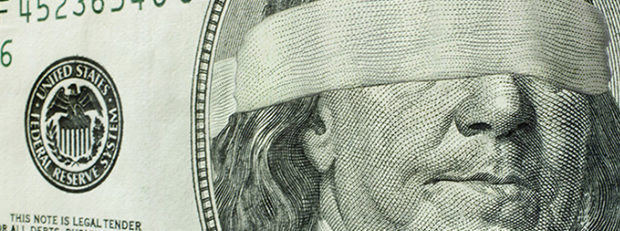What an Economic Recession Could Mean for Healthcare
It’s looming, in the coming months or next year, many financial experts foresee an inevitable economic recession in the United States and elsewhere. A large downturn in the economy will adversely affect the aspect of most people’s lives. Their finances, lifestyle and healthcare. Initially, the effect(s) of a recession on the healthcare sector may not be obvious. Healthcare organizations don’t always take into consideration how an economic downturn is likely to affect them financially.
How a Recession Affects Healthcare Providers
In 2008-2009, there was a recession in the United States. The effect of this recession on the healthcare sector provides an indicator of how a future recession will affect healthcare providers. Though the exact causation (*see COVID-19 / Coronavirus) and impact of a recession may vary, the information listed below, provides a guideline on what should be expected. The list is not entirely comprehensive, yet most healthcare providers should find it useful.
Reduction in Healthcare Workers
There already is a shortage of trained and experienced staff for many specialized healthcare and medical treatments. Industry experts and healthcare organizations predict a major shortage of qualified doctors and support staff (such as nurses) in the next few years. This problem is usually resolved using temporary or locum tenens staff. However, during a recession, the demand for temporary healthcare staff is likely to reduce, due to the decline of those patients seeking specialized healthcare.
At present, there is a shortage of clinicians for emergency room work, primary care physicians, specialists in behavioral health and professionals for treating addictions. Similarly, there is a shortage of trained staff who provide direct care. Due to the high demand for direct care, the number of service providers are less than the number of qualified staff.
Oddly enough and during the recession a decade ago, healthcare organizations reported that the number of nurses offering their services had increased in some regions in the United States. This was partly attributed to the fact that some nurses who had earlier retired, took up jobs again. In other cases, nurses postponed the date of their retirement, while nurses who were only working part time, started looking for full-time jobs. The increase in nurse workforce helped alleviate the shortage.
Reduction in Demand for Specific Healthcare Services
There are additional economic factors which are likely reduce the demand for healthcare professionals, which includes nurses. During a recession, people have less money and naturally postpone medical treatment to reduce their expenses. The American Academy of Family Physicians (abbreviated as AAFP) had conducted a survey during the recession. They found that families with limited funds spent their money on essentials and other than medical and were forced to reduce the healthcare services which they previously used.
Despite the economic downturn, human beings still require medical treatment for serious health problems and diseases. However, to save money, they avoid taking medical help for health conditions which do not pose a threat to their life and other minor ailments. Analyzing the data available on hospital admissions and optional surgeries confirms this trend.
 Research conducted in 2013, on medical data during a severe economic recession, indicates that many people will delay expensive and optional surgical procedures. This decision is likely to financially affect surgeons, hospitals specializing in surgery and major healthcare providers and systems. Statistical data indicates that during the recession between 2009 and 2011, a typical hospital with 300 beds experienced a decline of approximately $3.7 million in medical billing. This was mainly because patients who otherwise used commercial insurance, were either unemployed or underemployed, making less money.
Research conducted in 2013, on medical data during a severe economic recession, indicates that many people will delay expensive and optional surgical procedures. This decision is likely to financially affect surgeons, hospitals specializing in surgery and major healthcare providers and systems. Statistical data indicates that during the recession between 2009 and 2011, a typical hospital with 300 beds experienced a decline of approximately $3.7 million in medical billing. This was mainly because patients who otherwise used commercial insurance, were either unemployed or underemployed, making less money.
It’s widely believed that the manner in which healthcare consumers spent their money during the recession, permanently altered the healthcare sector. To deal with the decline in spending, healthcare providers increasingly focused on expanding options for outpatient care. When compared to the cost of conventional hospital admission (inpatient) and patient care, usually outpatient services are inexpensive and affordable.
The aforementioned survey of the AAFP noted the following healthcare trends during an economic recession:
- the number of patients with major symptoms of stress increased
- many patients were concerned whether they had sufficient funds to pay for their healthcare expenses
- the number of appointments which were cancelled by patients increased
- there was a decrease in the number of patients who were insured by their employer or privately
- since patients did not undertake preventive healthcare recommended to reduce expenses, some patients developed new ailments and health complications
The Complex Relationship between the Economy and Healthcare
The United States economy determines the complicated correlation between employment rates, health insurance coverage, medical expenses and a patient’s access to quality healthcare. Many factors, some of which are unknown, can determine the effectiveness of healthcare and the cost. The financial incentives for a medical practitioner, hospital or other healthcare organization may match or in some cases, conflict with the patient’s requirement for healthcare. During a recession, patients are likely to postpone medical treatments which are unurgent. This adversely affects the revenue of the healthcare sector.
Additional financial problems are faced by healthcare providers, since the number of patients who do not pay medical expenses increased for services received. This forces the healthcare provider to either write off the amount, or include it in the payments due. Donations from charities and funding from government agencies locally, at the state or federal level, may also decrease, adversely affecting hospitals and smaller healthcare providers.
Experts believe that a recession is unlikely to have a major impact on healthcare in the country. The healthcare sector is likely to grow (yet become more consolidated), although technology affects direction and speed of changes.
Contact us today to speak with someone on how we can be an reliable, valuable medical billing asset to you and your medical practice, during a boon or bane economy.

